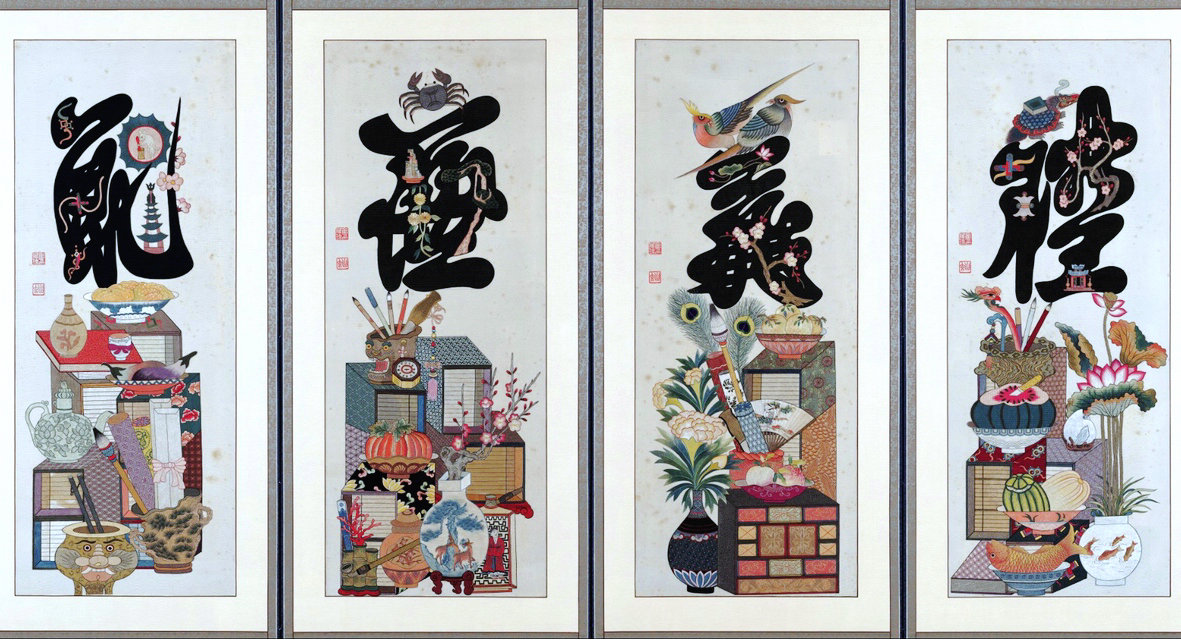Yi, (Chinese: 義), literally “justice, righteousness; meaning,” is an important concept in Confucianism. It involves a moral disposition to do good, and also the intuition and sensibility to do so competently.
Yi resonates with Confucian philosophy’s orientation towards the cultivation of benevolence (ren) and skillful practice (li).
Yi represents moral acumen which goes beyond simple rule following, and involves a balanced understanding of a situation, and the “creative insights” necessary to apply virtues “with no loss of sight of the total good. Yi represents this ideal of totality as well as a decision-generating ability to apply a virtue properly and appropriately in a situation.”
In application, yi is a “complex principle” which includes:
skill in crafting actions which have moral fitness according to a given concrete situation
the wise recognition of such fitness
the intrinsic satisfaction that comes from that recognition.
“Yi” is one of Confucian five virtues (benevolence, righteousness, courtesy, wisdom, faith). Confucianism is important to establish a harmonious relationship with the people around you. The central idea of Confucius is “benevolence”, and the central idea of Mencius is “righteousness”. The Western Han Dynasty Dong Zhongshu believes that the “fairness, righteousness, courtesy, wisdom, and trust” five common ways is to deal with interpersonal relationships.
In Confucius’ time
Yì entails that one should always act right and right, and such as that which is appropriate from the situation, without the hassle and by sincerely holding on to the responsibility one has for others. The situational can be exemplified by a quote from Conversations, which is one of the Confucian classics:
The Master says: When the “way” (that is, the true way) characterizes the government, then you must speak and act in a bold and fair manner. When the “road” does not characterize it, act righteously, but speak with humility.
Yì lies ahead of Confucius (551 – 497 BC) in time, but it was Confucius’ work and teaching that put a sharper focus on the principle. Then yì became one of the five ordinances, the five Confucian virtues that should also underlie and permeate the good government: rén (humanity) yì, (righteousness), lǐ (ritual / affirmation), zhī (wisdom) and xīn (allegiance).
The philosophers of the centuries after Confucius
The philosopher Xunzi (or Xun Qing, 313 – 238 BC) developed a model in which yì (and purity) were greatly repressed in favor of the values of f (law) and lǐ. Two of his disciples, Han Fei and Li Si, with this new philosophical paradigm at the bottom, became the most prominent exponents of legalism who, during the Qin dynasty, set out to eradicate alternative philosophical directions including Rú (Confucianism). For these reasons, Xunzi became especially since the Tang Dynasty time no longer an accepted view that Xunzi should have been a true exponent of Confucianism.
The Confucian philosopher Mengzi (372 – 289 BC) taught that the values of pure, yì, lǐ and zhī are not instilled in man from outside; it already possesses their beginnings (duān) from birth.
Neoconfucianism
The early neokonfucianeren Zhou Dunyi (1017 – 73) modified YÌ s place in the value system. He promoted the understanding of man as the supreme being of the universe, and that he himself had the intelligence and consciousness to understand the universal principles. The problems that arose in the human arena, as the ancient wise after Zhu’s explanation explained, could be solved by the correct application of the worlds zhōng (middle way), cheng (sincerity), rén and yì.
It would be Zhu Xi who developed neoconfucianism in its more enduring form, and in his synthesis of former neoconfucians he describes the values that constitute the foundations of human nature: xīao (childish piety), xīn (loyalty), rén (humanity), yì (righteousness), lǐ (plea) and zhī (wisdom).
Taoist
Laozi believes that “righteousness” is due to the decline of “benevolence”; and “benevolence” is due to the decline of “Tao” (and “German”).
Ambiguity
The ambiguity (Yiqi) is a concept derived from righteousness, which is widely used in Chinese folks to express friendship and concern among friends. In martial arts novels and underworld, it often emphasizes the loyalty between people. To put it another way, the meaning of “Yiqi” is narrower than “Yi” and can be called “small meaning of righteousness.”
